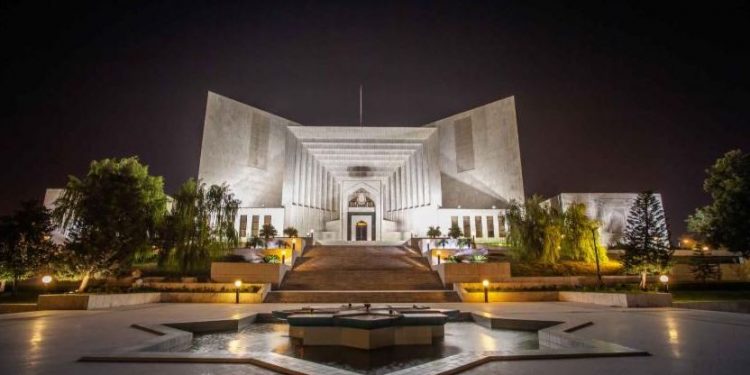Islamabad: Pakistan’s parliament Friday notified a law to curtail the powers of the Supreme Court Chief Justice from taking sou motu actions and authority to constitute panels of judges for cases to be heard, taking the prevailing tensions with the judiciary a notch higher.
Relations between the judiciary and the ruling coalition have become sour ever since the ruling Pakistan Muslim League-Nawaz (PML-N)-led government has been pushing for the Supreme Court (Practice and Procedure) Bill 2023 to dilute chief justice’s power to take suo motu action and form a panel of judges for hearing of cases.
It was initially passed by both houses of parliament and sent to the president for his assent. However, the president sent it back, saying that the proposed law travelled “beyond the competence of parliament”.
April 10, the bill was passed for the second time by a joint sitting of parliament with certain amendments, amid a noisy protest by lawmakers from ousted prime minister Imran Khan’s Pakistan Tehreek-e-Insaf (PTI) party.
Through its Twitter account Friday, the National Assembly announced that the controversial bill became law after mandatory ten days since the parliament passed the bill again after the president had returned it without an endorsement for reconsideration.
“Supreme Court (Practice and Procedure) Act, 2023 of the Majlis-e-Shoora (Parliament) is deemed to have been assented by the President […] under clause (2) of Article 75 of the Constitution of the Islamic Republic of Pakistan. It is hereby published for general information,” the tweet said.
The parliament went ahead to notify the law despite an eight-member bench of the Supreme Court, including Chief Justice Umar Ata Bandial, last week barring the government from processing the then-bill to become a law.
“The moment that the bill receives the assent of the president or it is deemed that such assent has been given, then from that very moment onwards and till further orders, the Act that comes into being shall not have, take or be given any effect nor be acted upon in any manner,” said an interim order issued by the bench of the court April 13.
The key piece of legislation dilutes the powers of the chief justice by stating a three-member panel of senior judges, including the chief justice would decide if suo motu notice should be taken.
It also gave the right of appeal in all suo motu cases with retrospective effect.
The law also states that every cause, matter, or appeal before the apex court would be heard and disposed of by a bench, constituted by a committee made up of the chief justice and the two senior-most judges.
Previously the chief justice enjoyed sole power to take suo motu and set up benches.
There was no concept of appeal in an action taken under the suo motu notice.
By giving the right of appeal, among others, former premier Nawaz Sharif disqualified by the Supreme Court under suo motu powers would get the right to appeal within 30 days of the law’s enactment.
Since the court had already stopped the government from enforcing the act into law, it is not clear if the right of appeal would be entertained by the court.
However, the new law further increased the gulf between the judiciary and the parliament – the latter getting the full support of the government.
Earlier, the law was passed twice by parliament because the president returned it after it was sent back by the president without his signatures, which are required for any bill to become an act. However, if the same bill is passed without any changes, the president cannot only delay it for ten days and it becomes a law even without his endorsement.
PTI







































